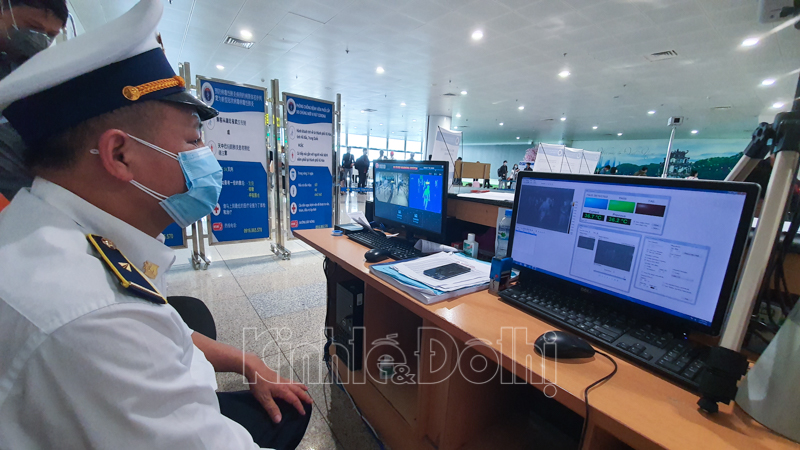Arrivals to Hanoi from Omicron-hit countries must undergo centralized quarantine
Hanoi will tighten immigration control at Noi Bai International Airport and monitor all passengers with a history of traveling through countries and regions that have recorded the new coronavirus strain of Omicron.
All passengers from countries that have detected the Omicron variant must undergo centralized quarantine, even when they have been fully vaccinated or have recovered from Covid-19 within the past six months.
The decision was issued on December 27 by the Hanoi People's Committee.
A new guideline effective from January 1 allows fully vaccinated people and those who have recovered from Covid-19 to self-isolate for three days and others for seven days.
Under the decision, for the early detection of the Omicron variant, Hanoi will tighten immigration control at Noi Bai International Airport and monitor all passengers with a history of traveling through countries and regions that have recorded the new coronavirus strain, including South Africa, Botswana, Namibia, Zimbabwe, Eswatini, Lesotho, Mozambique, among others.
Medical supervision at Noi Bai International Airport. Photo: Ngoc Tu |
Passengers arriving from other countries must have tested negative for the coronavirus 72 hours prior to their entry into Vietnam. The airport will strictly control passengers' negative test results certificates and medical declarations.
Hanoi has also instructed laboratories to proactively conduct gene sequencing for early detection of the variant. Random testing will be done on people who entered Vietnam in the last 28 days after traveling Omicron-hit regions, those re-infected with Covid-19, and those from pandemic hotspots.
Besides, Hanoi has set out a plan to deal with the detection of the first case of Omicron infection which includes vigorous contact tracing to cut off the chain of transmission.
Depending on the risk of the Omicron variant spreading and causing severe disease, the city will implement further protocols for controlling the pandemic.
The Omicron variant, which was first reported in late November from South Africa, has spread to at least 108 countries and territories with over 150,000 cases, prompting governments to impose stricter restrictions including travel bans.
In an interview with The Hanoi Times via phone, Tran Dac Phu, senior advisor at the Public Health Emergency Operations Center under the Ministry of Health said that although Vietnam has not yet found any Covid-19 cases carrying the Omicron variant, the risk of Omicron penetrating and then spreading in Vietnam is very high.
"The World Health Organization said this is a variant of concern because of its high transmissibility. Therefore, it is necessary to stay alert because the highly contagious strain could overload the nation's healthcare system," Phu stressed.
Deputy Prime Minister Vu Duc Dam also said at a recent seminar that Vietnam will not hurry to fully reopen to foreign visitors as concerned about the Omicron variant.
"We should not be negligent about the pandemic during the new normal period when the world is struggling with the Omicron strain, which is 3.2 times more infectious than the Delta strain," Dam said.
Earlier, Ho Chi Minh City in mid-December started imposing more stringent inspections on foreign arrivals, especially those coming from places where the Omicron variant of the Covid-19 virus has been detected.












